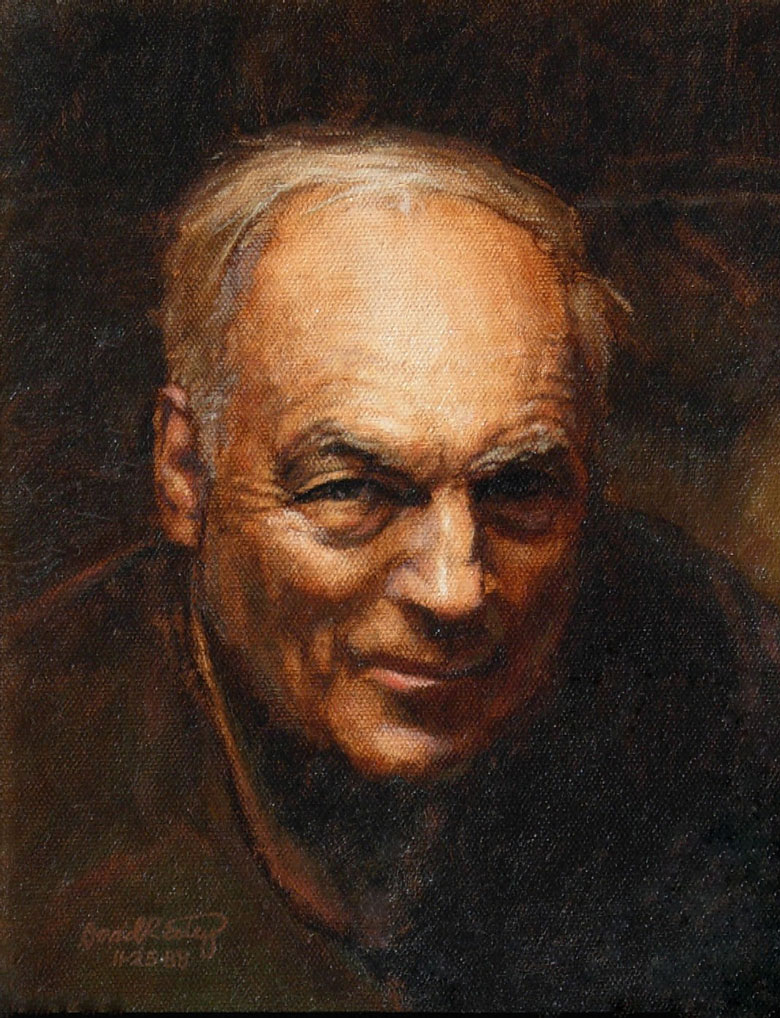My uncle, Clarence Hilyard, bought and ran the Katahdin Lake Camps in the mid-1960s as a Maine guide. One of his most interesting visitors each fall was Monhegan painter James Fitzgerald, whose work is now well-known and highly regarded.
Clarence told several humorous stories about Fitzgerald, two of which appeared in Carl and David Little’s book Art of Katahdin, after I introduced them to Clarence.
My favorite is when Fitzgerald was standing lakeside studying “the moods of the mountain,” as he often did, when some hunters were walking in looking for the camps.
“Hey mister, which way to the camps?” they called, once in earshot. Fitzgerald ignored them. As they got closer, the called again, “Hey mister, which way to the camps?” No response. Once they were right next to him, one said, “Hey mister, didn’t you hear us calling you?” Fitzgerald turned slowly toward them and said, “Can’t you see I’m busy?”
“It was an awful mess, all abstract and everything, so I had to repaint it myself.”
Fitzgerald didn’t associate with the hunters and preferred to eat in the kitchen with Clarence and Aunt Glenda. Glenda used to watch TV painting episodes hosted by Bob Ross and fancied herself a painter also.
One day she asked Fitzgerald to repaint the faded colors on the lake trout mounted on the mantel. He declined. She kept pestering him until she finally enticed him with a promise to bake his favorite apple pie. He took his good ol’ time but finally delivered.
She told me, “It was an awful mess, all abstract and everything, so I had to repaint it myself.” When she asked Fitzgerald what he thought of her painting, he said, “Don’t give up your day job, Glenda.”
Clarence came upon Fitzgerald painting the mountain one day in his signature semi-abstract fashion and said to him, “Jim, the mountain doesn’t look anything like that!” Whereupon Fitzgerald replied, “No, but don’t you wish it did?”
One of Clarence’s predecessors, William Wingate Sewall, took on a sickly young Teddy Roosevelt at the camps and built him up to be a vigorous young man, later a Rough Rider and eventually president of the United States. They remained friends and Sewell visited him in the White House. When Clarence was repairing the dilapidated cabins, he found Roosevelt’s name carved into the one where he had stayed.
David Estey is a Belfast artist and president of the Union of Maine Visual Artists.





